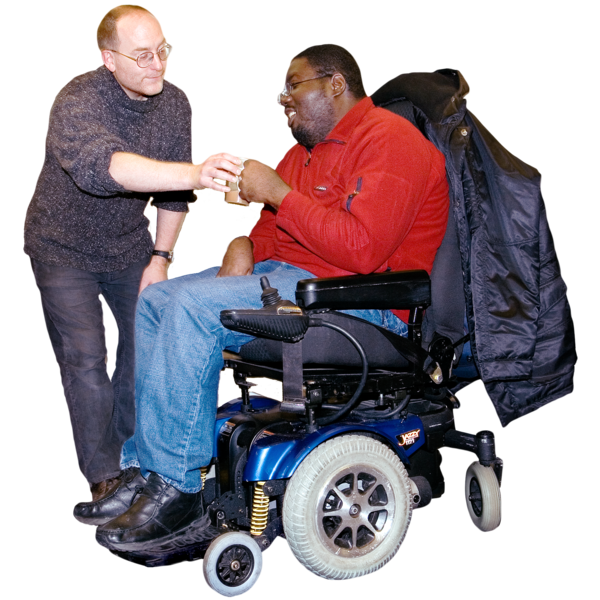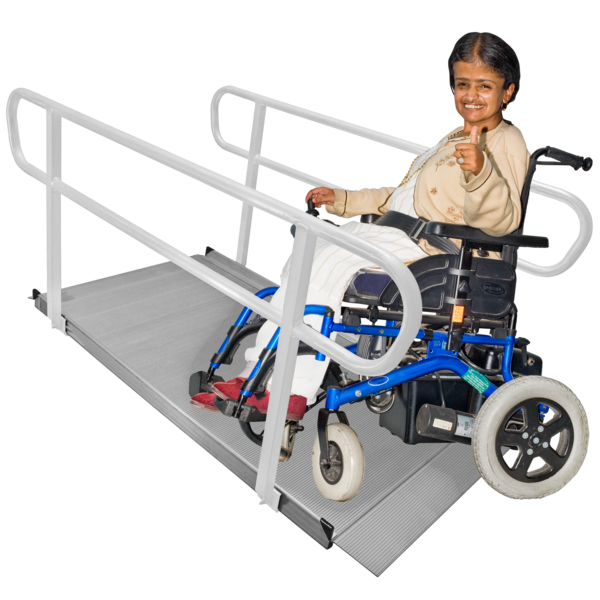Mencap responds to the seventh Learning Disability Mortality Review (LeDeR) annual report, published by King’s College London today. It is also the first report to investigate deaths by autistic adults without a
learning disability
 A learning disability is to do with the way someone's brain works. It makes it harder for someone to learn, understand or do things.
, due to concerns that autistic people may also experience health inequalities that could lead to avoidable deaths.
A learning disability is to do with the way someone's brain works. It makes it harder for someone to learn, understand or do things.
, due to concerns that autistic people may also experience health inequalities that could lead to avoidable deaths.
Dan Scorer, Head of Policy and Public Affairs at Mencap said:
“This year's LeDeR report appears to show signs of a reduction in the shocking inequalities in life expectancy and health outcomes for people with a learning disability. However, the report asks important questions on how much of an improvement has really been made.
“It’s been 10 years since the Confidential Inquiry into the Premature Deaths of People with a Learning Disability, and many of the recommendations for improvements for care haven’t changed since 2013 and the risk of avoidable death for people with a learning disability is still twice that of the general population.
“This year’s report again highlights that people from Black, Asian and minority ethnic backgrounds are at a much-increased risk of experiencing health inequality and premature death: urgent action is needed to address this.
“Whilst the report shows evidence of an increase in life expectancy for women with a learning disability, they are still dying 23 years earlier than women in the general population. In addition, with deaths of people with a learning disability living in the most deprived areas at 3 times the level of those living in the least deprived areas, there’s no room for complacency.
“This year, with the introduction of several key programmes of work including the Oliver McGowan
Mandatory
 Mandatory means that something must be done.
Training In Learning Disability and
Autism
Mandatory means that something must be done.
Training In Learning Disability and
Autism
 Autism is a disability. Autistic people find it difficult to understand what other people think and feel. They also find it difficult to tell people what they think and feel. Everyone with autism is different.
, and the Reasonable Adjustment Flag, we have the chance to turn some of this around, but this will only happen with sustained support and priority from NHS England and the Department for Health and
Social Care
Autism is a disability. Autistic people find it difficult to understand what other people think and feel. They also find it difficult to tell people what they think and feel. Everyone with autism is different.
, and the Reasonable Adjustment Flag, we have the chance to turn some of this around, but this will only happen with sustained support and priority from NHS England and the Department for Health and
Social Care
 Social care means the services that give care and support to people who need it.
. Integrated Care Systems also need to sustain and build on their efforts to learn from deaths in their areas and deliver inclusive and
accessible
Social care means the services that give care and support to people who need it.
. Integrated Care Systems also need to sustain and build on their efforts to learn from deaths in their areas and deliver inclusive and
accessible
 Accessible means something is easy for people to use or join in with. For example: Accessible writing means the writing is easy to read and understand.
health and care services that genuinely meet people's needs.”
Accessible means something is easy for people to use or join in with. For example: Accessible writing means the writing is easy to read and understand.
health and care services that genuinely meet people's needs.”
-ENDS-
Note to editors:
For further information or to arrange an interview with a Mencap spokesperson or case study, please contact Mencap’s media team on: media@mencap.org.uk or 020 7696 5414 (including out of hours).
About Mencap:
There are approximately 1.5 million people with a learning disability in the UK. Mencap works to support people with a learning disability, their families and carers by fighting to change laws, improve services and access to education, employment and leisure facilities. Mencap supports thousands of people with a learning disability to live their lives the way they want: www.mencap.org.uk
For advice and information about learning disability and Mencap services in your area, contact Mencap’s Freephone Learning Disability Helpline on 0808 808 1111 (10am-3pm, Monday-Friday) or email helpline@mencap.org.uk.
What is a learning disability?
A learning disability is a reduced intellectual ability which means that people might need support with everyday tasks – for example shopping and cooking, or travelling to new places – which affects someone for their whole life;
Learning disability is NOT a mental illness or a learning difficulty, such as dyslexia. Very often the term ‘learning difficulty’ is wrongly used interchangeably with ‘learning disability’;
People with a learning disability can take longer to learn new things and may need support to develop new skills, understand difficult information and engage with other people. The level of support someone needs is different with every individual. For example, someone with a severe learning disability might need much more support with daily tasks than someone with a mild learning disability.
